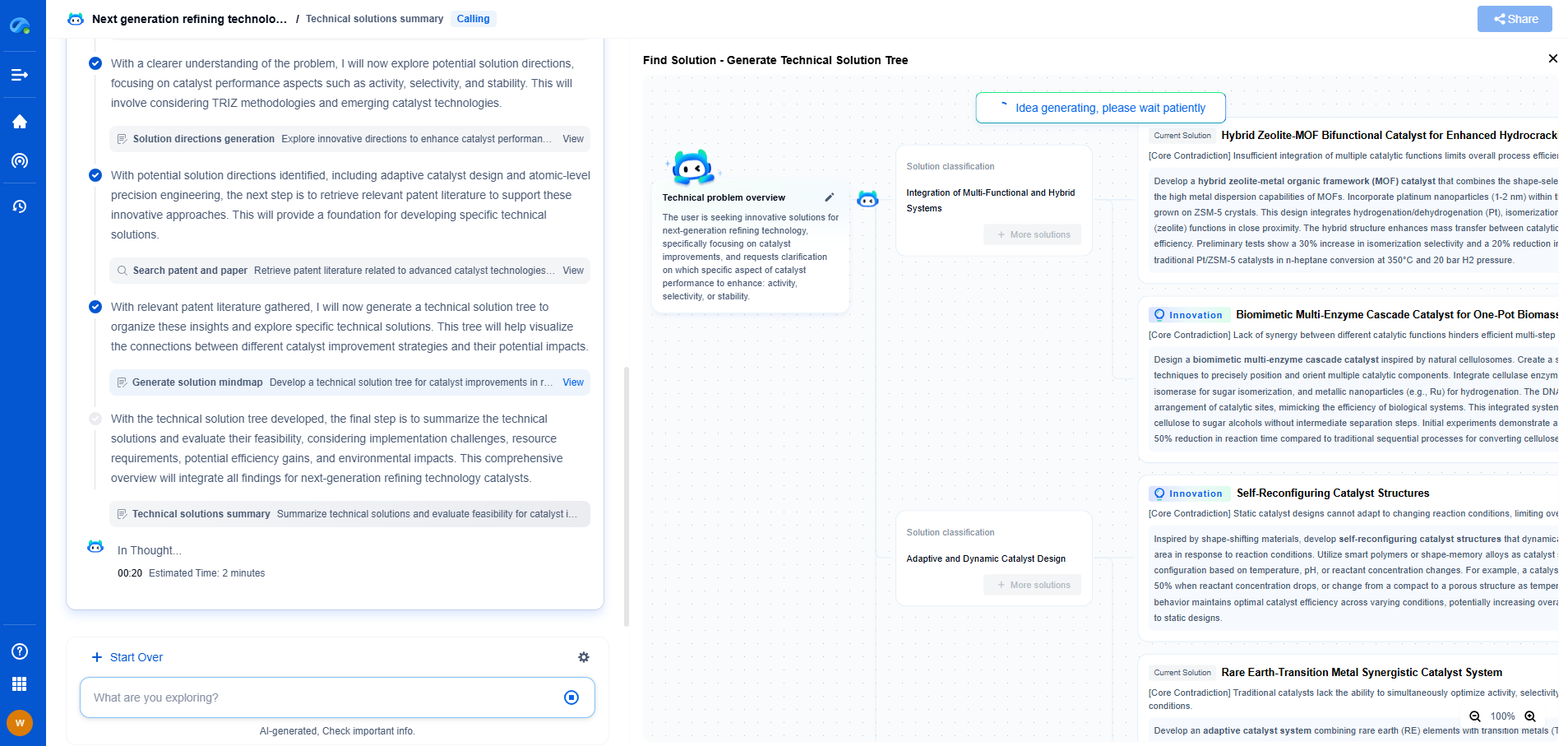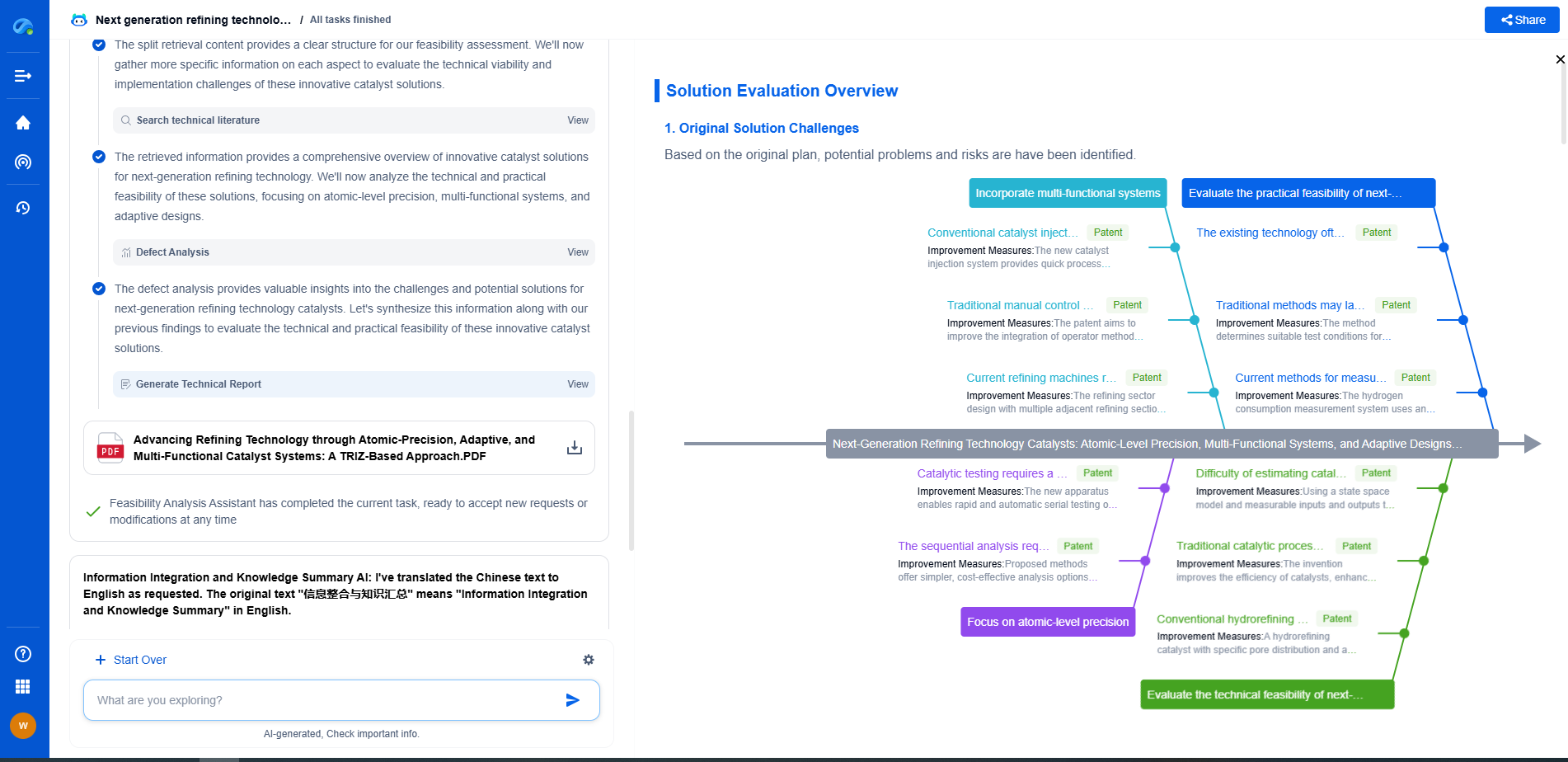DNV-GL vs ABS: Marine Power System Certification Paths
JUN 26, 2025 |
In the maritime industry, ensuring that marine power systems meet stringent safety and performance standards is critical. Two of the most prominent certification bodies that oversee these standards are DNV-GL and ABS. Both organizations offer comprehensive certification processes, yet they are distinct in their methodologies and focus areas. This article delves into the certification paths offered by DNV-GL and ABS for marine power systems, highlighting their similarities, differences, and the implications for shipbuilders and operators.
Understanding DNV-GL and ABS
DNV-GL, short for Det Norske Veritas Germanischer Lloyd, is based in Norway and Germany, and has a long-standing history of providing risk management and quality assurance services. Its focus is on promoting the safety and sustainability of various industries, including maritime. DNV-GL offers a wide range of certification services with a strong emphasis on innovation and environmental responsibility.
The American Bureau of Shipping (ABS), headquartered in the United States, is another leading global classification organization. ABS is dedicated to setting standards for the design, construction, and operational maintenance of marine-related facilities. It is renowned for its commitment to safety and reliability, offering services that ensure compliance with international and local regulations.
Certification Processes: DNV-GL vs. ABS
Certification by DNV-GL
DNV-GL's certification process for marine power systems is comprehensive, focusing on risk management and sustainability. The process includes a thorough review of design documents, risk assessments, and environmental impact studies. DNV-GL places significant emphasis on cutting-edge technology and innovation, encouraging the use of eco-friendly power solutions such as LNG (liquefied natural gas) systems and hybrid engines.
DNV-GL's certification process is designed to be iterative and collaborative. It involves multiple rounds of inspections and feedback, ensuring that potential issues are addressed early in the design phase. This proactive approach not only helps in mitigating risks but also promotes continuous improvement and operational excellence.
Certification by ABS
The ABS certification path is known for its rigorous adherence to safety standards and regulatory compliance. ABS focuses on the reliability and durability of marine power systems, providing a robust framework for evaluating mechanical and electrical components. ABS emphasizes the application of engineering principles and comprehensive testing to ensure systems perform under diverse conditions.
ABS offers detailed technical guidance and industry insights throughout the certification process. Their approach is structured to meet both international standards and specific regional requirements, making it highly adaptable for global operations. ABS is particularly noted for its ability to support projects with complex logistical challenges, offering tailored solutions to ensure compliance.
Key Differences and Considerations
While both DNV-GL and ABS are committed to ensuring the safety and performance of marine power systems, shipbuilders and operators should consider their distinct focuses and strengths. DNV-GL's emphasis on innovation and environmental responsibility makes it an ideal choice for projects aiming to incorporate sustainable technologies or emerging power solutions. On the other hand, ABS's reputation for engineering excellence and safety makes it a preferred choice for projects where proven reliability and adherence to stringent safety regulations are paramount.
Additionally, regional preferences and specific project requirements may influence the choice between DNV-GL and ABS. Stakeholders should carefully evaluate their project's unique needs, the regulatory environment, and long-term operational goals when selecting a certification path.
Conclusion
Choosing between DNV-GL and ABS for marine power system certification is a critical decision that can influence the success and sustainability of maritime projects. Both organizations offer robust frameworks that cater to different aspects of safety, reliability, and innovation. By understanding their unique offerings and approaches, shipbuilders and operators can make informed decisions that align with their strategic objectives and operational priorities, ensuring the highest standards of maritime safety and performance.
Stay Ahead in Power Systems Innovation
From intelligent microgrids and energy storage integration to dynamic load balancing and DC-DC converter optimization, the power supply systems domain is rapidly evolving to meet the demands of electrification, decarbonization, and energy resilience.
In such a high-stakes environment, how can your R&D and patent strategy keep up?
Patsnap Eureka, our intelligent AI assistant built for R&D professionals in high-tech sectors, empowers you with real-time expert-level analysis, technology roadmap exploration, and strategic mapping of core patents—all within a seamless, user-friendly interface.
👉 Experience how Patsnap Eureka can supercharge your workflow in power systems R&D and IP analysis. Request a live demo or start your trial today.
- R&D
- Intellectual Property
- Life Sciences
- Materials
- Tech Scout
- Unparalleled Data Quality
- Higher Quality Content
- 60% Fewer Hallucinations
Browse by: Latest US Patents, China's latest patents, Technical Efficacy Thesaurus, Application Domain, Technology Topic, Popular Technical Reports.
© 2025 PatSnap. All rights reserved.Legal|Privacy policy|Modern Slavery Act Transparency Statement|Sitemap|About US| Contact US: help@patsnap.com

